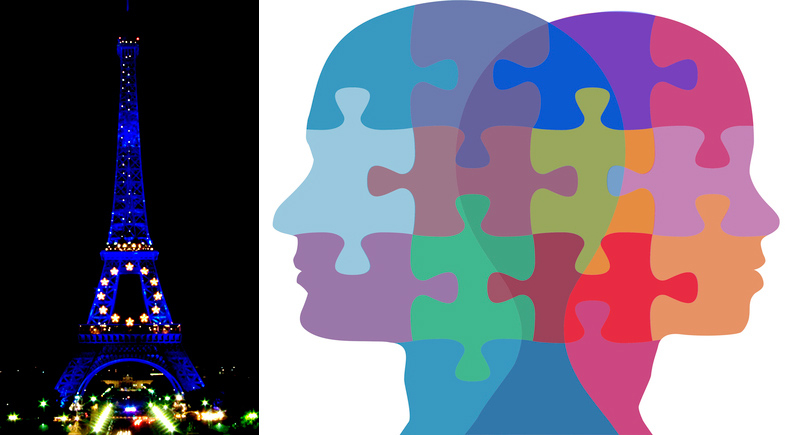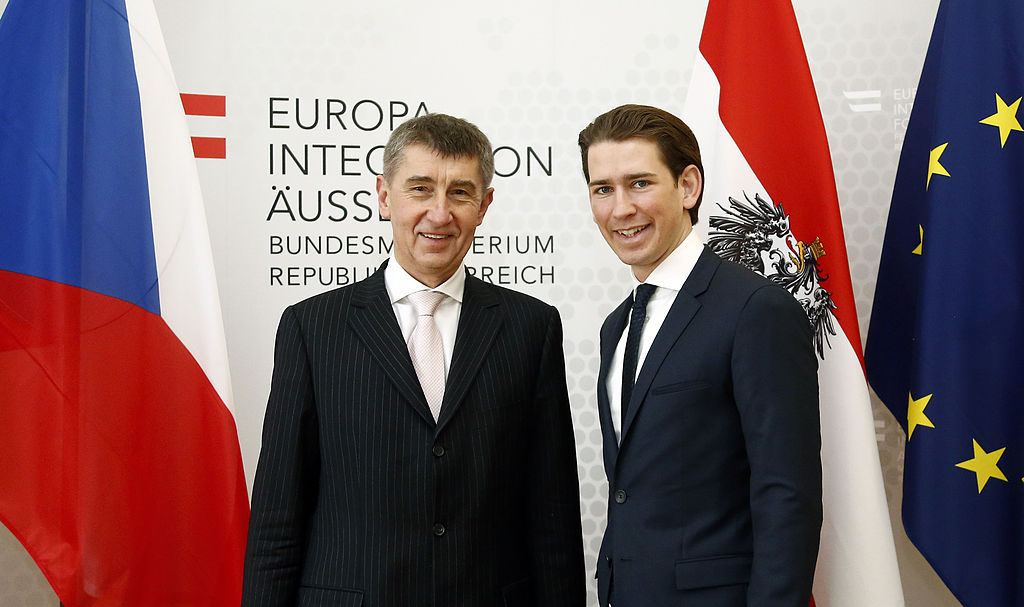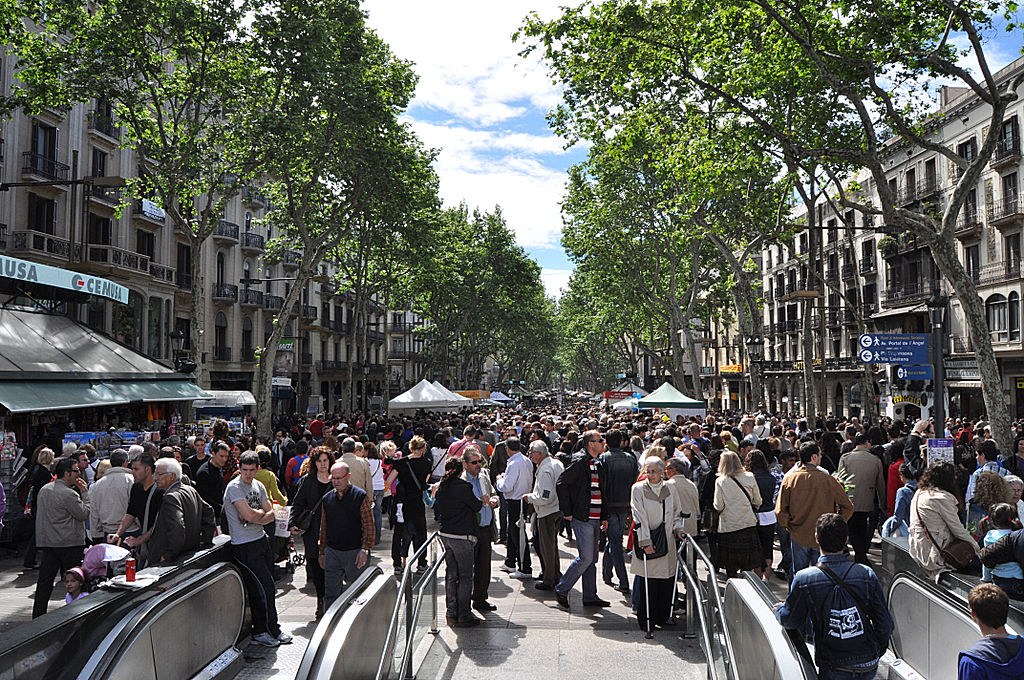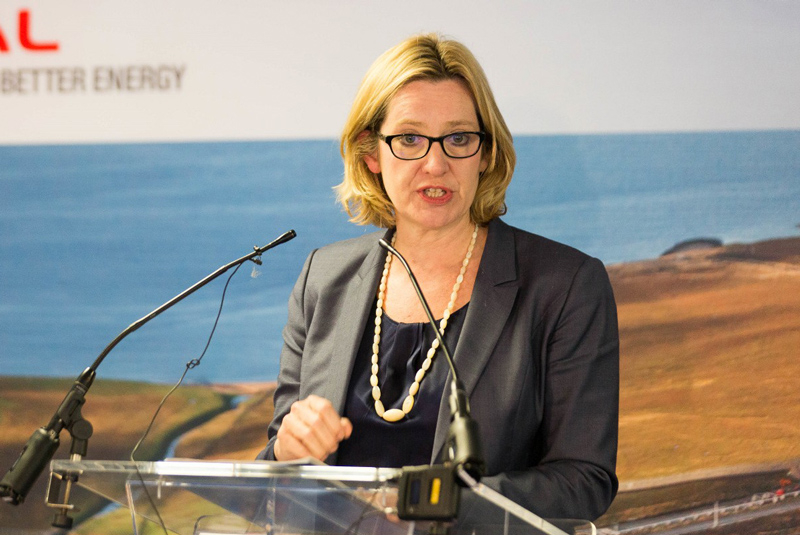Multiculturalism Is Splintering the West
- Multiculturalism is leading to the "partition", the separation of European societies. – Alexandre Mendel, author of the new book, Partition: A Chronicle of the Islamist Secession in France.
- Under European multiculturalism, Muslim women lost many rights they should have had in Europe. Multiculturalism is, in fact, based on the legalization of a parallel sharia society, which is founded on the rejection of Western values, above all equality and freedom.
- The European establishment closed its eyes while Muslim supremacists were violating the rights of its own people.
The European Union's official statistics on terrorism are dramatic:
"As long as that continues, the failure of integration will pose a mortal threat to Europe", the Wall Street Journal wrote after a suicide bombing that killed 22 people in Manchester.
According to a new book by the French reporter Alexandre Mendel, Partition: Chronique de la sécession islamiste en France ("Partition: A Chronicle of the Islamist Secession in France"), multiculturalism is leading to the separation of European societies.
It is also leading to constant waves of terror attacks.
Last August, on a single day, Islamists killed 20 Europeans in Barcelona and Finland.
A month later, they slaughtered two girls in Marseille, and in Birmingham a Shiite boy was brutally wounded. That is the deadly harvest of Europe's multiculturalism.
It is the most romanticized, seductive European ideology since Communism.
There is an "increasingly permanent chain of 'suspended communities' nesting within nations throughout the West", the American historian Andrew Michta recently wrote.
In Birmingham there is a suburb, Sparkbrook, which has produced one-tenth of the England's jihadists. All of Europe's biggest cities have separated enclaves where Islamic apartheid now proliferates.
There, Burqas and beards mean something. Dressing has always symbolized loyalty to a lifestyle, a civilization.
When Mustafa Kemal Atatürk abolished the Caliphate in Turkey, he forbade beards for men and veils for women.
The proliferation of Islamic symbols in Europe's ghettos now demarcates the separation of these suburbs. The new leader of England's UK Independence Party (UKIP), Henry Bolton, recently said that the Britain is "buried" by Islam and "swamped" by multiculturalism.
"Multiculturalism," according to the former Archbishop of Canterbury, Lord Carey of Clifton, "has led to honour killings, female genital circumcision and the establishment of sharia law in inner-city pockets throughout the UK."
Under European multiculturalism, Muslim women lost many rights they should have had in Europe. They face "honor crimes" for refusing to wear an Islamic veil; for dressing up in Western clothes; for meeting with Christian friends; for converting to another faith; for seeking a divorce; for resisting being beaten and for being too "independent".
It is one of the great ironies of multiculturalism: five European NATO members are now fighting in Afghanistan against the Taliban who enslave women, while in Europe the same thing is taking place in our own ghettos.
Under multiculturalism, polygamy has increased, along with female genital mutilation (500,000 cases across Europe). Multiculturalism is, in fact, based on the legalization of a parallel sharia society, which is founded on the rejection of Western values, above all equality and freedom.
In addition, the fear of "offending" Islamic minorities has been leading to wishful blindness. That is what happened in Rotherham, a city of 117,000 people in northern England, where the mass-rape and grooming of at least 1,400 children by "rape gangs of Pakistani origin" was allowed to go on for many years.
Under multiculturalism, anti-Semitism has also skyrocketed, especially in France. The French weekly L'Express just devoted an entire issue to the "new malaise of the French Jews".
All Europe's recent political earthquakes are a consequence of the failure of multiculturalism. As the British Historian Niall Ferguson said, the main reason for Brexit was immigration.
In France, Marine Le Pen's political ascent coincided with two years of major terror attacks, in which 230 French citizens were murdered.
Moreover, the extraordinary success in the recent general election of the Alternative for Germany (AfD) party is the consequence of Chancellor Angela Merkel's fatal decision to open the doors to over a million refugees and migrants. Beatrix von Storch, an AfD leader, just said to BBC that "Islam does not belong to Germany". She explained that it is one thing to allow Muslims privately to preach their Islamic faith, but another to appease political Islam, which is trying to change German democracy and society.
The European establishment has closed its eyes while Muslim supremacists were violating the rights of its own people. Many Islamists then knocked at the doors of Europe with ever more determination. Multiculturalism has been killing and destabilizing Europe as only Nazism and Communism have done before.
"In 2016, a total of 142 failed, foiled and completed attacks were reported by eight EU Member States. More than half (76) of them were reported by the United Kingdom. France reported 23 attacks, Italy 17, Spain 10, Greece 6, Germany 5, Belgium 4 and the Netherlands 1 attack. 142 victims died in terrorist attacks, and 379 were injured in the EU. 1,002 persons were arrested for terrorist offences in 2016".These countries all tried to integrate Muslim communities, but all came to the same dead end.
"As long as that continues, the failure of integration will pose a mortal threat to Europe", the Wall Street Journal wrote after a suicide bombing that killed 22 people in Manchester.
According to a new book by the French reporter Alexandre Mendel, Partition: Chronique de la sécession islamiste en France ("Partition: A Chronicle of the Islamist Secession in France"), multiculturalism is leading to the separation of European societies.
It is also leading to constant waves of terror attacks.
Last August, on a single day, Islamists killed 20 Europeans in Barcelona and Finland.
A month later, they slaughtered two girls in Marseille, and in Birmingham a Shiite boy was brutally wounded. That is the deadly harvest of Europe's multiculturalism.
It is the most romanticized, seductive European ideology since Communism.
There is an "increasingly permanent chain of 'suspended communities' nesting within nations throughout the West", the American historian Andrew Michta recently wrote.
"The emergence of these enclaves, reinforced by elite policies of multiculturalism, group identity politics, and the deconstruction of Western heritage, has contributed to the fracturing of Western European nations".Only twenty minutes separate the Marais, the elegant quarter of Paris where Charlie Hebdo's offices were located, and Gennevilliers, a suburb that houses 10,000 Muslims, where the Kouachi brothers, who gunned down Charlie Hebdo's cartoonists, were born and raised.
In Birmingham there is a suburb, Sparkbrook, which has produced one-tenth of the England's jihadists. All of Europe's biggest cities have separated enclaves where Islamic apartheid now proliferates.
There, Burqas and beards mean something. Dressing has always symbolized loyalty to a lifestyle, a civilization.
When Mustafa Kemal Atatürk abolished the Caliphate in Turkey, he forbade beards for men and veils for women.
The proliferation of Islamic symbols in Europe's ghettos now demarcates the separation of these suburbs. The new leader of England's UK Independence Party (UKIP), Henry Bolton, recently said that the Britain is "buried" by Islam and "swamped" by multiculturalism.

(Image sources: Yann Caradec, Coco0612/Wikimedia Commons)
|
"Multiculturalism," according to the former Archbishop of Canterbury, Lord Carey of Clifton, "has led to honour killings, female genital circumcision and the establishment of sharia law in inner-city pockets throughout the UK."
Under European multiculturalism, Muslim women lost many rights they should have had in Europe. They face "honor crimes" for refusing to wear an Islamic veil; for dressing up in Western clothes; for meeting with Christian friends; for converting to another faith; for seeking a divorce; for resisting being beaten and for being too "independent".
It is one of the great ironies of multiculturalism: five European NATO members are now fighting in Afghanistan against the Taliban who enslave women, while in Europe the same thing is taking place in our own ghettos.
Under multiculturalism, polygamy has increased, along with female genital mutilation (500,000 cases across Europe). Multiculturalism is, in fact, based on the legalization of a parallel sharia society, which is founded on the rejection of Western values, above all equality and freedom.
In addition, the fear of "offending" Islamic minorities has been leading to wishful blindness. That is what happened in Rotherham, a city of 117,000 people in northern England, where the mass-rape and grooming of at least 1,400 children by "rape gangs of Pakistani origin" was allowed to go on for many years.
Under multiculturalism, anti-Semitism has also skyrocketed, especially in France. The French weekly L'Express just devoted an entire issue to the "new malaise of the French Jews".
All Europe's recent political earthquakes are a consequence of the failure of multiculturalism. As the British Historian Niall Ferguson said, the main reason for Brexit was immigration.
"Many people in the UK looked at the refugee crisis in Europe and thought: if they get a German passport, they will come to Britain and we will not be able to stop them. This was a key issue for voters, and legitimately, because the Germans had opened the doors to a vast influx from the Muslim world. If you looked at these things from the United Kingdom, the reaction was: wait a moment, what if they come here?"In the Netherlands, the rise of Geert Wilders is the direct result of the murder of filmmaker Theo van Gogh by a Dutch Islamist and the anti-multiculturalism backlash that followed it.
In France, Marine Le Pen's political ascent coincided with two years of major terror attacks, in which 230 French citizens were murdered.
Moreover, the extraordinary success in the recent general election of the Alternative for Germany (AfD) party is the consequence of Chancellor Angela Merkel's fatal decision to open the doors to over a million refugees and migrants. Beatrix von Storch, an AfD leader, just said to BBC that "Islam does not belong to Germany". She explained that it is one thing to allow Muslims privately to preach their Islamic faith, but another to appease political Islam, which is trying to change German democracy and society.
The European establishment has closed its eyes while Muslim supremacists were violating the rights of its own people. Many Islamists then knocked at the doors of Europe with ever more determination. Multiculturalism has been killing and destabilizing Europe as only Nazism and Communism have done before.
Giulio Meotti, Cultural Editor for Il Foglio, is an Italian journalist and author.









